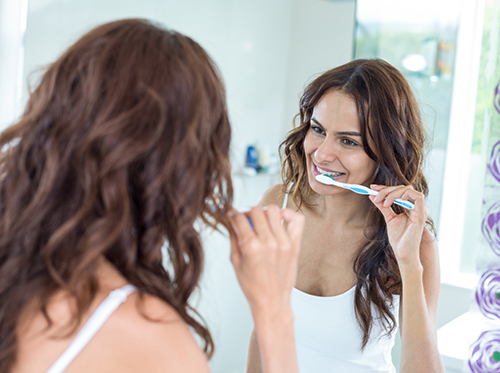Is Coffee Damaging Your Smile?
November 4th, 2020

Coffee is one of the most popular drinks in the world. Many people have a cup, or two, or even three a day. It’s common to drink it in the morning to wake up and get ready for the day, as an afternoon pick-me-up, or just to catch up with a coworker or friend.
These days there are many different kinds of coffee flavors to enjoy, so it’s almost impossible for a person not to like it. But as delicious as coffee is, it’s worthwhile to be aware of the effects it has on our dental health.
Coffee contains a lot of tannic acid, which is what causes its dark color. Tannic acid ingrains itself into the grooves of tooth enamel, and that leads to serious stains. In addition to containing tannic acid, the fact that coffee is generally served very hot makes your teeth expand and contract, which allows the stains to penetrate even farther into the enamel.
Dr. Hudis and our team know it’s not easy to kick the caffeine habit. If you find yourself needing a cup of joe every day, here are some helpful tips to consider:
- Switch to decaf coffee.
- Make it a habit to drink a glass of water with your coffee to rinse away the acid.
- Try enjoying your coffee with a straw so the tannic acid makes less contact with your front and lower teeth.
- Pop in a piece of gum after your coffee to help prevent a dry mouth.
If you’re feeling ambitious, you might find that setting a limit on the number of cups of coffee you have per week or even per day can be helpful. You are always welcome to contact our Princeton, NJ office to discuss potential whitening options as well. We’re here to help!






